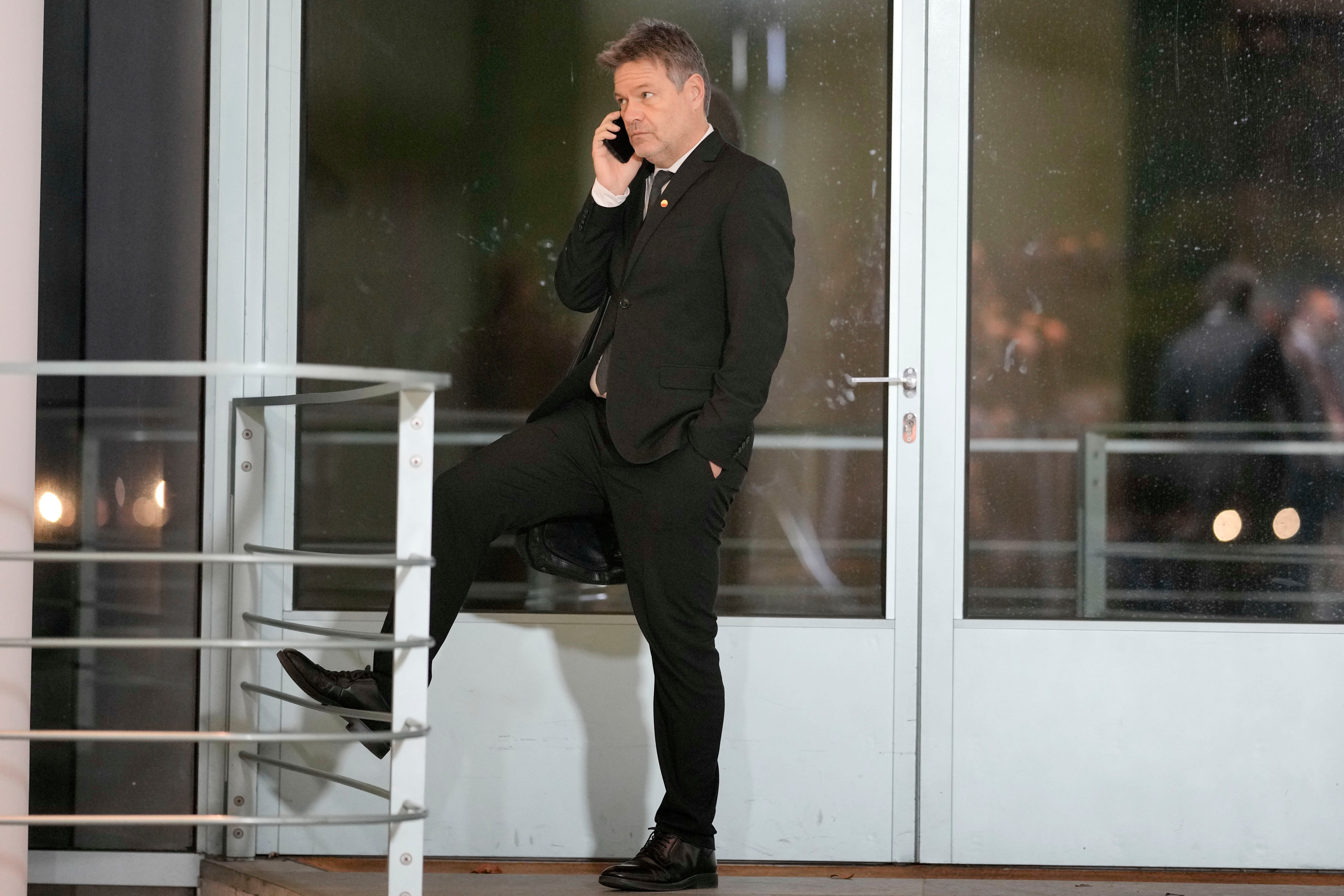Farmers prevent Germany's vice chancellor leaving a ferry in a protest that draws condemnation
A group of farmers prevented Germany’s vice chancellor from disembarking a ferry hours after the government partially climbed down on cost-saving plans that had infuriated the agricultural sector

Your support helps us to tell the story
From reproductive rights to climate change to Big Tech, The Independent is on the ground when the story is developing. Whether it's investigating the financials of Elon Musk's pro-Trump PAC or producing our latest documentary, 'The A Word', which shines a light on the American women fighting for reproductive rights, we know how important it is to parse out the facts from the messaging.
At such a critical moment in US history, we need reporters on the ground. Your donation allows us to keep sending journalists to speak to both sides of the story.
The Independent is trusted by Americans across the entire political spectrum. And unlike many other quality news outlets, we choose not to lock Americans out of our reporting and analysis with paywalls. We believe quality journalism should be available to everyone, paid for by those who can afford it.
Your support makes all the difference.A group of farmers prevented Germany's vice chancellor from disembarking a ferry, hours after the government partially climbed down on cost-saving plans that had infuriated the agricultural sector. The protest drew condemnation from both government and opposition figures.
Police said the farmers blocked a jetty in Schluettsiel on the North Sea coast Thursday evening and Vice Chancellor Robert Habeck had to return to the small island of Hooge, German news agency dpa reported. They said Friday that Habeck, a member of the environmentalist Green party who is also economy and climate minister, reached the mainland on another ferry during the night.
More than 100 people took part in the blockade and pepper spray was used by the roughly 30 officers who were deployed, police said.
Chancellor OIaf Scholz's unpopular government angered farmers last month by announcing plans to cut agricultural subsidies as part of a package to fill a 17 billion-euro ($18.6 billion) hole in the 2024 budget. Farmers staged a protest with tractors in Berlin and called for more demonstrations next week.
On Thursday, the government announced a partial about-turn. It said it would retain an exemption from car tax for farming vehicles and would stagger planned reductions in tax breaks for diesel used in agriculture.
The German Farmers Association quickly said that the climbdown didn't go far enough. It said it was still demanding that both proposals be reversed and it would stick to next week's planned protests.
Scholz's spokesperson, Steffen Hebestreit, wrote on social platform X that the ferry blockade “is shameful and violates the rules” of democratic society. Justice Minister Marco Buschmann wrote that “violence against people or objects has no place in the political argument! This discredits the cause of many farmers who demonstrate peacefully.”
“I share farmers' concerns, but this transgression is absolutely unacceptable,” Hendrik Wüst, the governor of North Rhine-Westphalia state and a member of Germany's main conservative opposition bloc, wrote on X. “It damages the farmers' justified cause and must have consequences.”
The chairman of the German Farmers Association, Joachim Rukwied, said in a statement Friday that “blockades of this kind are a no-go.” He added that “personal attacks, abuse, threats, coercion or violence are just not right.”
The budget revamp that included the disputed cuts was necessary after Germany’s highest court annulled an earlier decision to repurpose 60 billion euros (almost $66 billion) originally meant to cushion the fallout from the COVID-19 pandemic for measures to help combat climate change and modernize the country. The maneuver fell afoul of Germany’s strict self-imposed limits on running up debt.